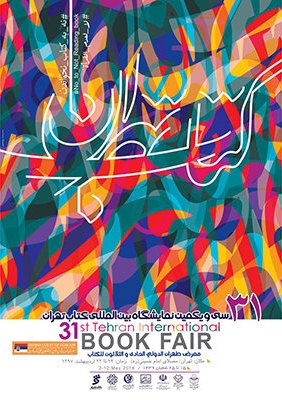Overview

The annual Tehran International Book Fair, which celebrated its 31st iteration in May 2018, is one of the key cultural diplomacy initiatives of Iran’s Ministry of Culture and Islamic Guidance geared toward spreading Iran’s ideology. Iran’s regime established the Ministry of Culture and Islamic Guidance in 1986, during the presidency of current Supreme Leader Ali Khamenei, as a means of spreading Khomeinist principles at home and abroad. Domestically, the ministry is tasked with restricting access to press and media deemed not in adherence with Iran’s revolutionary ideology and religious sensibilities, and with promoting cultural endeavors which further religiosity in society and the regime’s worldview. The ministry is also a key agent of “exporting” Iran’s Islamic Revolution. Among its roles are, “informing the world community about the basis and aspirations of the Islamic Revolution; expansion of cultural ties with various nations and Muslims and with ‘the oppressed people in particular’; running the affairs of the Haj, operation of facilities for domestic and international tourism; and ‘preparing the ground for spread of the culture of Islamic Revolution and Persian language in other countries’”.
Echoing Khomeini’s rhetoric on the centrality of education, the Iranian regime views books as an essential component of propagating its revolutionary principles. According to the Minister of Culture and Islamic Guidance, Seyyed Reza Salehi Amiri, “In a community in which book reading is not a value, we must expect ignorance and foolishness. In such a community, morality will be replaced by immorality; corruption will replace purity; honesty is substituted by lies; darkroom substitutes illumination; and interaction will give its place to confrontation.” The regime’s negative worldview has been instilled in young minds across Iran through educational interventions in primary and secondary schools. The thematic elements of ideological expansionism abroad are present in the textbooks that Iranian students are forced to read in school. To take one example on jihad, or holy war against Iran’s “enemies,” a fifth-grade textbook states, “Our hope is that the Islamic Revolution gets connected to the global revolution of Mahdi [the 12th or the Hidden Imam of the Shiites].” In combination with the glorification of “martyrdom” in other textbooks, the Shi’a belief in Mahdism, which calls for a global violent struggle against “evil” and “oppressive” forces, culminating in an apocalyptic battle that will hasten the return of the occulted figure, is particularly concerning. At their core, these radical sectarian teachings instill a deep hatred of non-Islamic faiths, including Judaism, Christianity, and Zoroastrianism, and are conveyed from Iran throughout the region and beyond.
Supreme Leader Khamenei has also issued numerous statements, compiled here, imploring Iranian citizens to be faithful to the Islamic Revolution by purchasing and reading more books. The vaunted status Khamenei accords to books is ironic given Iran’s antipathy to free and open inquiry. The regime regularly imprisons journalists, shutters opposition newspapers, censors the publication of books, and infamously issued a fatwa calling for the assassination of Salman Rushdie in response to the publication of The Satanic Verses. Khamenei himself has declared, “We cannot lift controls on the book market and thus allow harmful books to enter the market.”
Against this backdrop, the 2017 Tehran International Book Fair hosted nearly 140 foreign publishing agencies from countries including the US, the UK, France, the Netherlands, China, South Korea, Egypt, Lebanon, Iraq, Pakistan and Jordan. According to Minister Salehi Amiri, “What happened in the book fair indicates that Iran is concerned to develop its relationships with the neighboring countries and expand its international communications.” While many of the book fair’s offerings are fairly anodyne, the confab has garnered controversy in recent years due to the inclusion of an abundance of anti-Semitic and Holocaust denying literature from both Farsi and Western sources, including the notorious anti-Semitic forgery The Protocols of the Elders of Zion, and a book entitled Jewish Supremacists by David Duke.
Revolutionary Activities Abroad
Backed by the Ministry of Culture and Islamic Guidance, the Tehran International Book Fair frequently exhibits Iranian publishers and titles at similar book fairs around the world. In recent years, Iran has participated in book fairs in Beijing, New Delhi, Frankfurt, Belgrade, and Vienna. Notably, Iran has disregarded Western sensibilities, using the occasions to exhibit many of its most noxious offerings.
Beyond offering Iran a platform for its anti-Semitic regime ideology, Iran’s attendance at various international book fairs has helped the regime weather international attempts to isolate it for its illicit nuclear program. Under the guise of cultural exchange, Iran’s participation in such endeavors has served to normalize and confer prestige upon the regime, frequently in the heart of Western nations. Iran views these cultural interactions instrumentally as a stepping stone to the expansion of economic and diplomatic ties.